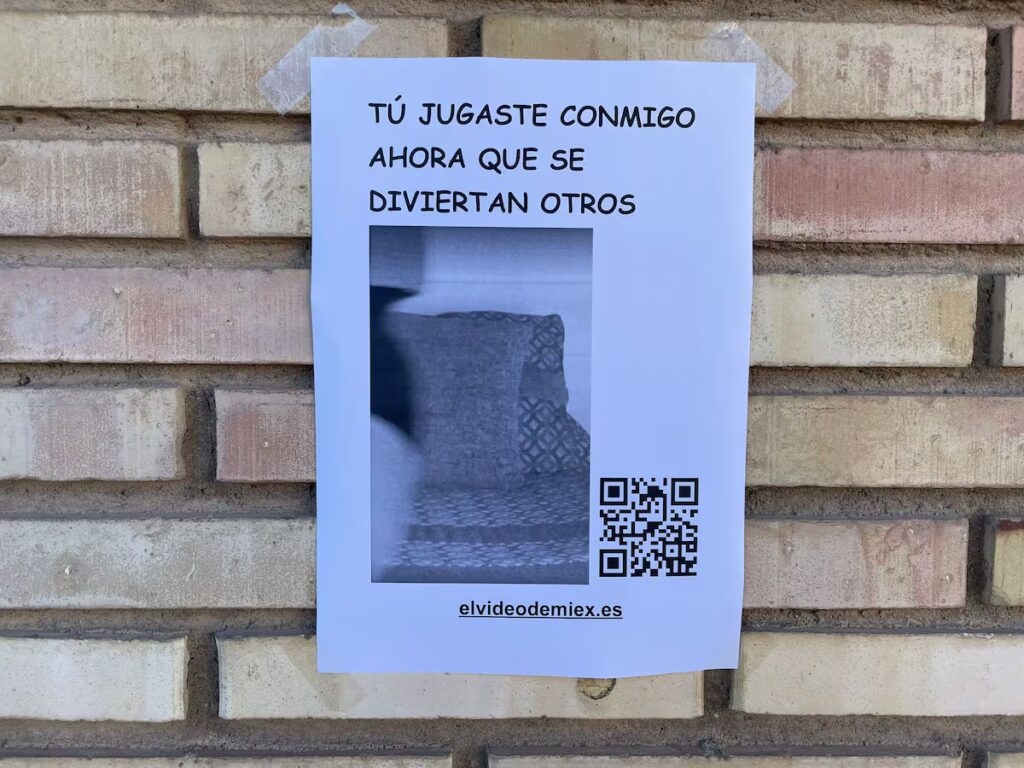
Your cell phone rings. It’s a Whatsapp. Specifically, a video. The paralyzed image already warns of the type of content. You open it, you see it, you share it. You just sent all your friends an intimate recording of a woman. You don’t know who he is or how old he is. You know that, most likely, you did not authorize its production and distribution. You don’t care. What you just perpetrated is digital sexist violence and women suffer it every day. This is where the campaign of the Zamora City Council is focused elvideodemiex.eslaunched on the occasion of the International Day for the Elimination of Violence against Women (25 November).
It is not a residual phenomenon. Numerous statistics collected in the study Violence against women, girls, boys and adolescents in the digital sphere ―carried out by the Association of Women Jurists Themis and promoted and coordinated by the Government Delegation against Gender Violence― denote the seriousness of the problem.
Just a very superficial example: according to the UN, more than 73% of women in the world have been exposed to or suffered some type of violence on the Internet. In the 27 countries of the European Union, nine million women have experienced online violence since the age of 15. 90% of victims of the distribution of intimate sexual images without consent are women.
Another example: the Crimes Against Sexual Freedom Report 2023of the Ministry of the Interior, highlights that 66% of registered sexual cybercrime victims are women, while 96% of sexual cybercriminals investigated or arrested are men and 86.3% are national citizens. According to this statistic, 84.8% of victims are under the age of 18 (of this percentage, 47.6% are under the age of 13).
Upholstered
On the morning of Tuesday 18 November, Zamora woke up covered in posters on which there was a QR code and this message: “You made fun of me, now let others have fun”. “An ambiguous and deliberately provocative phrase, which referred to the site elvideodemiex.es, where an alleged intimate video of a sexual nature was found”, they explain from the municipality of Zamorano.
However, when you access the link, what you see – in addition to various data such as those detailed above – is a video with the following text: “To make visible the increase in digital sexual violence suffered by women, we launched a campaign that simulated a man’s revenge by disseminating intimate material from his ex-partner. In just 24 hours, 1,454 people visited the page. Many of the posters disappeared from the streets a few hours after they were put up. Citizens alerted the security forces of what they perceived it as a possible situation of sexist violence, even if unconsciously, watching or sharing intimate videos without consent is also sexism and increases violence against women.
The large number of opinions “confirms the original thesis of the campaign”, comments the Municipality’s Equality Councilor, Auxi Fernández, “but the experiment also revealed a behavior that surprised us: a rapid and strong social reaction was generated by men and women of all ages”. Many of the posters, he adds, disappeared from the streets a few hours after they were posted. Dozens of citizens alerted security forces to what they perceived as a possible situation of violence and invasion of privacy.
“This spontaneous gesture, repeated in many parts of the city, reflects a change in social sensitivity towards the different forms of violence against women, especially those that are perpetrated in digital environments. Citizens have shown not only refusal, but also a proactive attitude to stop this type of behavior which normalizes the dissemination of intimate content without consent, one of the most serious and widespread manifestations of sexist violence on the Internet”, they underline.
The suicide of a woman
The promoters of this campaign were members of the Zamora advertising agency Alto el Fuego, also responsible for the latest 8M initiative, called The price of being a woman. They assure that the germ of the idea comes from before, from 2019, when an Iveco employee committed suicide after the spread of a sexual video. “We believed it was a good time, because the victims of this type of violence have increased, especially among young people. They share this type of content among their groups and doing it out of revenge is increasingly common.” Regarding the functioning of the campaign, they state that it was “an experiment”, but that they could foresee its positive development, “because the poster itself was already very surprising and human beings are morbid by nature”.
The agency underlines that the posters were torn down and that many people called the police, but also recognizes that more than 1,400 views in less than 24 hours, in a city like Zamora, “are worrying figures”.





